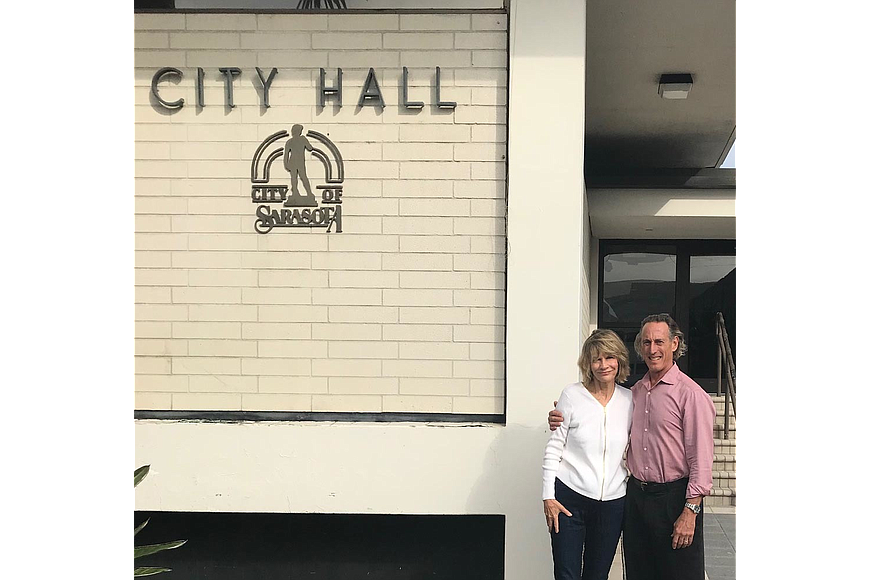- December 21, 2024
-
-
Loading

Loading

In October, the City Commission discussed holding a referendum about moving municipal elections from the spring to the fall. The board ultimately declined to pursue a ballot initiative, citing a lack of established public support for the concept.
Now, a citizen-led group is working to provide evidence that public support exists. The Decide the Date campaign is gathering resident signatures in pursuit of a referendum regarding city elections, according to an announcement the group issued Dec. 12.
The campaign’s co-chairs are Larry Eger, a public defender in the 12th Judicial Circuit Court, and former Sarasota mayor Suzanne Atwell. The group believes moving the March and May elections to coincide with the general election cycle in August and November of even years will increase voter turnout.
“For too long, the question of when to elect commissioners in the city of Sarasota has been wrongly kept from the voters,” Atwell said in the release. “This is simply a bipartisan effort to provide that opportunity — it is the voters who should decide the date.”
“For too long, the question of when to elect commissioners in the city of Sarasota has been wrongly kept from the voters."
Voter turnout hovers around 20% in spring municipal elections but typically tops 50% in November general elections. Although recent August primary elections have drawn voter turnout in the low-to-mid 20% range, Eger still believes the city should opt for a process that gets more voters involved.
“It’s always frustrated me that such a small minority of people who participate decide on the composition of our City Commission,” Eger said.
Critics of the proposal have said an August/November election cycle would lead to decreased attention for city races, forced to compete with national and state elections. They have also expressed concern about forcing candidates to campaign the summer, when it’s hot outside and fewer part-time residents are in town.
When the City Commission considered a referendum on moving election day in 2015 and 2016, former Mayor Mollie Cardamone suggested the changes could have a partisan influence. Because the Republican Party generally fares better in county-level races, Cardamone worried Republican voters would be more motivated to turn out than Democrats.
Although city elections are nominally nonpartisan, local political parties have supported registered Democratic and Republican candidates. Cardamone believes moving the election date could further amplify the role of partisan politics in the city.
“I believe changing the election, with the primary in August, will bring out a huge Republican interest,” Cardamone said in a previous interview with the Sarasota Observer.
Eger said Decide the Date wants to at least give voters an opportunity to decide whether they should elect city commissioners in the spring or the fall. He said previous petition efforts that would have moved election day were also tied to bigger changes in the structure of city government, such as the creation of an elected mayor position.
“If people don’t want to move it and a majority of the people who participate don’t want to move it, then the majority has spoken,” Eger said. “But we’ve never addressed this issue. We’ve always confused it with others.”
The group needs to gather more than 3,700 signatures within 180 days to get an initiative on the ballot.
If the question gets on the ballot and a majority of voters approve the change, the City Commission would have to decide how to transition to the new election cycle. There would be an 18-month gap between the spring 2019 election and the fall 2020 elections.
City Attorney Robert Fournier has outlined three possible solutions to bridge that gap: